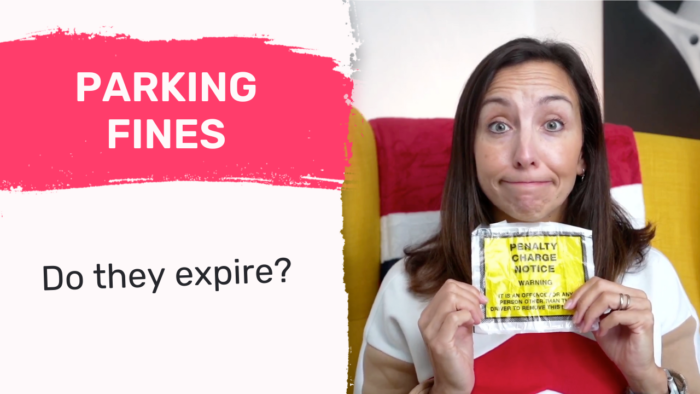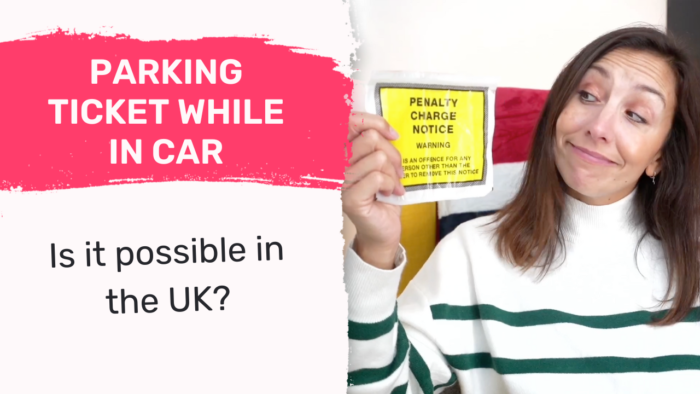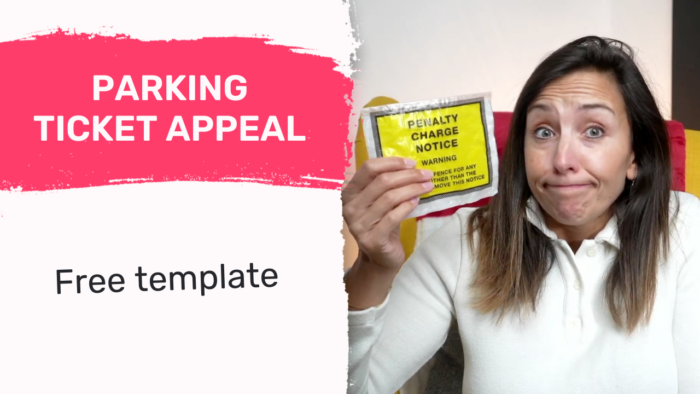Do Parking Fines Expire in the UK?

If you have old parking fines in the UK and you’re not sure if they’re still in place, this article can help. Every month, we provide guidance to over 32,000 people like you who are looking for answers about tickets and fines.
In this article, we will:
- Explain if parking fines have a time limit in the UK.
- Discuss the difference between a parking ticket on private land and a penalty charge notice.
- Share what happens when you don’t pay a parking fine, and if it can lead to a criminal offence.
- Give tips on how to appeal against a fine and possibly win.
- Talk about when you should ignore a fine, and for how long a council or a private operator can ask you for payment.
We understand that getting a parking fine can be worrying. You might be scared about paying a fine and making it enforceable again or about getting into trouble for not paying. But remember, we’re here to help. We’ve seen a lot of situations like yours, and we can guide you through what to do next. Let’s find out more about parking fines in the UK.
Most Ticket Appeals Succeed
In some circumstances, you might have a legitimate reason not to pay your fine.
It’s a bit sneaky, but the last time I needed legal advice, I paid £5 for a trial to chat with an online solicitor called JustAnswer.
Not only did I save £50 on solicitor feeds, I also won my case and didn’t have to pay my £271 fine.
Chat below to get started with JustAnswer
*According to Martin Lewis, 56% of people who try to appeal their ticket are successful and get the charge overturned, so it’s well worth a try.
Is a parking ticket on private land the same as a penalty charge notice?
No. The two are quite different and should not be dealt with in the same way. For example, a parking ticket on private land is an invoice, not a fine. Whereas a penalty charge notice is a fine backed by UK legislation.
Say you got a Tesco parking charge notice, the issuer must take you to a small claims court and win to get you to pay!
Are parking fines enforceable UK?
Parking fines on private land are not immediately enforceable. An issuer cannot lawfully demand you pay until they win a case against you. In short, parking charge notices are only enforceable when there’s a court order for you to pay.
A Penalty Charge Notice, on the other hand, is backed by UK legislation which means the issuer doesn’t need to take you to court!
What happens when you don’t pay a Penalty Charge Notice?
The council or other authority sends you a Charge Certificate when you don’t pay a penalty charge notice within 28 days.
Plus, the fine increases by 50%!
You then have a further 14 days to pay the increased penalty charge.
If you don’t, enforcement agents (bailiffs) could pay you a visit!
What happens when you don’t pay a parking charge notice?
A car park management company chases you for payment when you don’t pay the parking charge within 28 days. You’ll receive payment reminders and demands from the operator. If you continue to ignore their correspondence, the issuer could:
- Pass your details to a debt collection agency
- Start legal proceedings to recover the amount through a small claims court
For the parking charge to be enforceable, the issuer must win the case. So, when a court orders you to pay, that’s it. You’ll have to pay the parking charge.
However, it’s worth noting that an issuer may threaten court action without intending to follow through. But it’s a gamble because they might!
Successful Appeal Case Study
Situation
| Initial Fine | £100 |
| Additional Fees | £171 |
| Total Fine | £271 |
The Appeal Process
Scott used JustAnswer, online legal service to enhance his appeal. The trial of this cost him just £5.
| Total Fine | £271 |
| Cost of legal advice | £5 |
JustAnswer helped Scott craft the best appeal possible and he was able to win his case.
Scott’s fine was cancelled and he only paid £5 for the legal help.
In partnership with Just Answer.
What’s the time limit for parking fines?
Private operators must issue a parking charge notice within 14 days of an alleged parking infringement. But this only applies when the notice includes the ‘Protection of Freedoms Act’ in it.
That said, if the parking ticket is stuck to your windscreen and you don’t respond, things change. For example, the issuer must send you a copy of the charge within 56 days of the alleged infringement.
This only applies to parking charge notices which include the ‘Protection of Freedoms Act’ in them.
When it comes to Penalty Charge Notices, a council or other authority must serve the fines within 28 days of the alleged parking violation. But, if the DVLA is slow to respond to a registered keepers details request, the time limit is extended.
Do parking fines expire UK?
It depends on whether you got a parking charge notice or a penalty charge notice. If you get a parking ticket on private land, the fine becomes statute-barred after 6 years! In short, the issuer can no longer chase you for payment after six years.
But if you got a penalty charge notice, the legal process that follows is swift! So, you’ll have no choice but to pay the fine once you get a Charge Notice!
I hope the information in my post answers the question ‘do parking fines expire UK’ and helps you cope with the situation you’re faced with.
Join thousands of others who got legal help for a £5 trial
Getting the support of a Solicitor can take a huge weight off your mind.
Reviews shown are for JustAnswer.
How long can a private operator chase you for payment?
A private operator can chase you for an unpaid parking charge notice for up to 6 years. So, when you ignore the fine, you may find things get expensive and messy.
After six years, the issuer can’t chase you because the unpaid invoice is ‘statute barred’.
Why? Because an unpaid parking fine falls within statute-barred law! The time limit starts from the date the ‘invoice’ is issued.
» TAKE ACTION NOW: Get legal support from JustAnswer
Should you ignore a parking fine?
When you ignore a parking fine, things could get expensive. For instance, debt collectors or bailiffs could contact you. You’ll get a CCJ on your credit file making it hard to borrow money, get a mortgage or credit card.
Most Ticket Appeals Succeed
In some circumstances, you might have a legitimate reason not to pay your fine.
It’s a bit sneaky, but the last time I needed legal advice, I paid £5 for a trial to chat with an online solicitor called JustAnswer.
Not only did I save £50 on solicitor feeds, I also won my case and didn’t have to pay my £271 fine.
Chat below to get started with JustAnswer
*According to Martin Lewis, 56% of people who try to appeal their ticket are successful and get the charge overturned, so it’s well worth a try.


